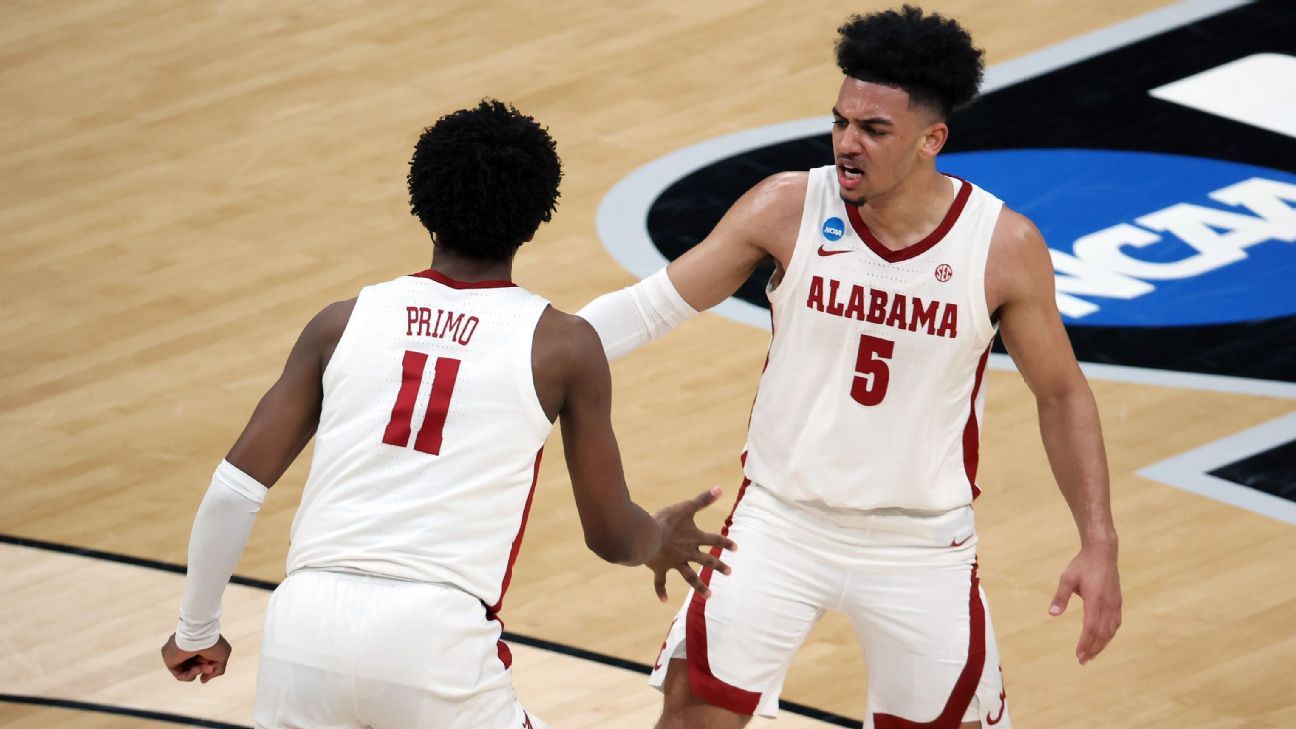The 2021 NCAA tournament provided more surprises and upsets in the second round on Sunday and Monday, as March Madness chaos continued to reign. But now we have a larger sample size with which to analyze the remaining field.
There is more movement on this list compared to our first-round reseeding because we’re assigning more value to the way teams have played in the first two games and who they’ve beaten, while also considering the seed they had when they entered the NCAA tournament and whether they look like they can advance to the Elite Eight.
With that in mind, here is our reseeded Sweet 16 field:
Head to Tournament Challenge and check on your bracket!

1. Gonzaga Bulldogs (Original seed: No. 1. Reseed: No. 1)
When Indiana completed the most recent perfect season in 1976, the NCAA tournament was a 32-team event. Nine years later, the field had doubled, adding an extra round for anyone trying to match IU’s feat. The first-weekend drama this year is evidence that this is the most difficult championship journey in major sports. The three teams with a shot at perfection since the expansion of the field in 1985 — UNLV in 1991, Wichita State in 2014 and Kentucky in 2015 — all fell short of their goal.
What’s undeniable about Gonzaga’s chances is its lopsided efforts against quality teams this season. Kansas? 12-point victory. Iowa? 11 points. Virginia? 23 points. Oklahoma is a quality Big 12 team but the Sooners just didn’t have the juice to compete for 40 minutes with this stacked Gonzaga team on Monday. The 87-71 win by Mark Few’s program on Monday was another sign that Gonzaga isn’t just the best team in America. It’s arguably one of the top four or five teams we’ve seen over the last decade in college basketball. Good teams don’t seem to have a shot against them — West Virginia’s five-point loss on Dec. 2 was the closest. It will take a great one to take them down and hand the Bulldogs their first loss of the season.

2. Baylor Bears (Original seed: No. 1. Reseed: No. 1)
It’s time for analysts and broadcasters to stop describing a team’s offensive and defensive prowess solely on the raw numbers because sometimes the other metrics tell a better story. In its 76-63 win over Wisconsin in the second round, the Bears excelled against a Badgers team that was top-20 in adjusted defensive efficiency. Baylor’s 119 points per 100 possessions in that game was comparable to the clip that the NBA-leading Brooklyn Nets offense has averaged this season. And Baylor achieved that mark against a strong defensive team. The Bears also found more pop off the bench. With Matthew Mayer on the floor, the Bears have made 42 percent of their 3-point attempts in the NCAA tournament (32 percent without him), per hooplens.com.
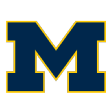
3. Michigan Wolverines (Original seed: No. 1. Reseed: No. 1)
Most teams would have significantly regressed if they’d lost a player like Isaiah Livers (13.1 PPG, 6.0 RPG, 2.0 APG) just before the NCAA tournament. And with Juwan Howard declaring that the standout is still “out indefinitely” following his team’s 86-78 win over LSU in the second round on Monday, it’s safe to assume Livers will probably be sidelined in the coming weeks, too. But Michigan’s depth has allowed the top seed to advance and still look like a team that can chase a championship. Brandon Johns (11 points) gave Michigan a boost against Texas Southern in the first round. Eli Brooks (21 points) carried Michigan against a relentless LSU squad on Monday. The Wolverines are averaging 84.0 PPG through two matchups in the NCAA tournament. This stretch has been a reminder that Michigan is still a force.
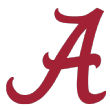
4. Alabama Crimson Tide (Original seed: No. 2. Reseed: No. 1)
In a weekend full of wild outcomes, Nate Oats’ squad put together one of the most impressive performances of the first and second rounds. Maryland is a solid Big Ten team but Alabama played at a different level in a 96-77 win over the Terps. It was the most points Maryland has ever allowed under Mark Turgeon and the most points the program has surrendered in regulation since 2009, per ESPN Stats & Info. It was Alabama’s fourth time scoring at least 80 points during its current eight-game winning streak. The Crimson Tide play fast but not reckless. They’re big and strong. They’re playing top-three defense, too. Jahvon Quinerly, a former five-star recruit who began his career at Villanova, finished Monday’s game with 14 points and 11 assists off the bench. John Petty Jr. and Jaden Shackelford combined to score 41 points. You won’t find a team in the Sweet 16 that Alabama can’t beat right now.

5. Loyola Chicago Ramblers (Original seed: No. 8. Reseed: No. 2)
The selection committee’s seeding of Loyola Chicago isn’t difficult to understand. The Ramblers lost to Wisconsin by double-digits in their only nonconference matchup against a Power 5 NCAA tournament team (the Ramblers also beat North Texas in January). They also had losses to Drake, Indiana State and Richmond, all without a signature win to offset those losses. More than anything, Porter Moser’s squad represents the unfairness of a season that provided limited nonconference options for midmajors due to COVID-19.
But the committee considered the metrics that told us this was a very good team months ago. This squad justified its No. 1 adjusted defensive efficiency rating on KenPom by holding Illinois to 0.88 points per possession. A second Final Four run in three years does not seem impossible for this group after leading Illinois — the best team not named Gonzaga for the last month — start to finish. No team beneath Loyola Chicago on this list can match the weight of that victory. The Ramblers have played top-seed basketball since Jan. 10 (one loss).

6. Villanova Wildcats (Original seed: No. 5. Reseed: No. 2)
That trendy projection that Villanova would fall before the second weekend failed to acknowledge that Jay Wright was still coaching this team. The Wildcats seemed wounded beyond repair after losing Collin Gillespie suffered a torn MCL just over a week before Selection Sunday. They lost their first two full games without him (Providence, Georgetown). But they scored at a rate of 112 points per 100 possessions in the first round against Winthrop and recorded a clip of 142 points per 100 possessions against North Texas in the second round. Yes, they had one of the easier paths to the Sweet 16. But Jeremiah Robinson-Earl (averaging 20.0 PPG, 8.5 RPG, 6.0 APG) and Co. have regained the stride that made them the Big East’s most efficient offense.

7. Florida State Seminoles (Original seed: No. 4. Reseed: No. 2)
Last year, after the ACC tournament had been canceled due to COVID-19, Leonard Hamilton took photos with his team at midcourt to celebrate its ACC regular season championship. That team had two NBA lottery picks (Devin Vassell, Patrick Williams) but Hamilton never had the chance to see how far it could go. Well, this season his team earned a trip to the Sweet 16 with a dominant 71-53 win over a good Colorado squad that made just 36 percent of its field goal attempts and committed 19 turnovers against Florida State’s defensive pressure in the second round on Monday night. Last year’s squad might have had a higher ceiling and more talent. But this year’s group is balanced and capable of anchoring Hamilton’s first Final Four run.

8. Syracuse Orange (Original seed: No. 11. Reseed: No. 2)
In six memorable games in the 2003 NCAA tournament, Carmelo Anthony averaged 20.1 PPG and made 48 percent of his 3-point attempts. We would never suggest that Buddy Boeheim is superior to Anthony, who led Syracuse on that national title run. But Boeheim’s numbers, thus far, are better. He’s averaging 27.5 PPG and connecting on 57 percent of his 3-point attempts for a Syracuse team that beat San Diego State and West Virginia to advance to the Sweet 16.
As a team, Syracuse has made 60 percent of its shots inside the arc and 49 percent of its 3-point attempts with Boeheim on the floor, per hooplens.com, in the NCAA tournament. It’s Jim Boeheim’s first Sweet 16 appearance since the 2017-18 season. None of this makes sense but Jim Boeheim’s best work in the postseason rarely does.
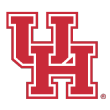
9. Houston Cougars (Original seed: No. 2. Reseed: No. 3)
DeJon Jarreau fought through constant hip pain that forced him to take multiple breaks to work with a trainer in his team’s 63-60 win over Rutgers in the second round on Sunday. It was a gritty victory that demanded a 22-point effort from Quentin Grimes. It was also a win that made you question Jarreau’s long-term availability. It’s fair to give Houston credit for its effort in a tight game while also acknowledging that its margin of victory in three wins against top-50 KenPom teams (two games against Memphis, Rutgers) this month is just 2.6 points per game. It has three other wins in March by 25 points or more, all against sub-100 KenPom squads. Houston is good. But the Cougars have been tested against the better teams on their schedule in recent weeks.
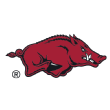
10. Arkansas Razorbacks (Original seed: No. 3. Reseed: No. 3)
Nothing pretty about the Razorbacks’ 68-66 win over Texas Tech in the second round, two days after they went 5-for-16 from the 3-point line in a first-round win over Colgate. Arkansas players not named Moses Moody (4-for-5) and Justin Smith (9-for-11) made just 35 percent of their attempts inside the arc against a Texas Tech team ranked top-25 in adjusted defensive efficiency. But we’ve watched higher seeds lose tough games in the first weekend. Arkansas survived, which has been the habit for Eric Musselman’s squad during its current 14-2 stretch. The postseason demands the late-game playmaking Arkansas employed to seal the win against a Texas Tech team that always seemed to be on the wrong end of a close game this season.

11. Oral Roberts Golden Eagles (Original seed: No. 15. Reseed: No. 3)
One game can be a fluke. But Oral Roberts is now the second team to ever reach the Sweet 16 as a 15-seed. How did this happen? The interesting thing is that Oral Roberts made its mark as a 3-point shooting team during the season (46 percent of its attempts are from beyond the arc, 38.2 percent accuracy). In NCAA tournament wins over Ohio State (11-for-35) and Florida (10-for-30), however, most of those shots didn’t fall. But Oral Roberts played with a defensive edge that changed both of those games. The Golden Eagles forced 36 turnovers in those two victories. Plus, Max Abmas and Kevin Obanor have combined to average 56.5 points per game as a duo in the NCAA tournament. This feels like a midmajor squad that found itself — seven consecutive wins — late in the season. But it’s also just a good squad with two of the best players in the Sweet 16 right now. That gives Paul Mills’ squad a chance.

12. USC Trojans (Original seed: No. 6. Reseed: No. 3)
When he arrived, Evan Mobley was billed as the projected lottery pick who could lead USC on a deep run in the NCAA tournament. The presence of his brother, Isaiah Mobley, was largely viewed as another storyline more than a significant factor in USC’s potential. But the Mobley brothers — plural — are the reason Andy Enfield is on his way to the Sweet 16 for the first time since he led Florida Gulf Coast there in 2013. Isaiah Mobley (17 points) and Evan Mobley (10 points, 13 rebounds) were too long and skilled for Kansas. The Trojans also made 61 percent of their 3-pointers and held Kansas under 30 percent from the field in their 85-51 victory in the second round. The Mobley brothers had 32 points in USC’s first round win over Drake. Together, they’re a complicated problem to solve.

13. Oregon Ducks (Original seed: No. 7. Reseed: No. 4)
It’s not Dana Altman’s fault Oregon advanced via “no contest” after positive COVID-19 tests forced VCU to withdraw from its first round matchup. The Ducks announced their arrival in the second round with a 95-80 win over an Iowa team that spent a portion of its season competing for a top seed and got 36 points from Wooden Award contender Luka Garza. The Pac-12’s NCAA tournament resurgence is tied to the abundance of athleticism on each remaining roster.
Chris Duarte (23 points) led four Oregon scorers who finished with at least 17 points against the Hawkeyes. In their lone outing in the NCAA tournament thus far, the Ducks recorded 127 points per 100 possessions. This is a sleeper for the Final Four. Altman’s team has lost just two games since Feb. 4. And Monday’s win came against an Iowa squad that had been listed among the nation’s top tier, a team with legitimate Final Four aspirations after playing its best basketball down the stretch. But Oregon toyed with the Hawkeyes at times. More than anything, the victory sent the message to the field that Oregon belongs even though it didn’t have to play its way into the second round.

14. Oregon State Beavers ((Original seed: No. 12. Reseed: No. 4)
Per ESPN’s BPI, Oregon State — a team that had a 7-9 record after its first 16 Pac-12 games — had a one-in-820 chance back then to reach the NCAA tournament second round. The ridiculous 3-point clip that fueled the run round of 32 was in contrast to the program’s collective mark of 33 percent accuracy from beyond the arc during conference play. Against Oklahoma State, the 3-pointers weren’t falling (6-for-20) but Ethan Thompson (26 points against Oklahoma State) and Co. held an opponent under 90 points per 100 possessions for the second consecutive game. If you’re searching for a logical reason for Oregon State’s wins over Tennessee and Oklahoma State, you’ll never find one beyond this: a team got hot in the most thrilling run in the field right now.
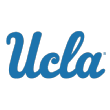
15. UCLA Bruins (Original seed: No. 11. Reseed: No. 4)
Mick Cronin’s squad entered the NCAA tournament on a four-game losing streak. Overall, the team was 4-5 in its nine games prior to the one-site affair in Indiana. Since then, the Bruins have defeated Michigan State (six points, overtime), BYU (11 points) and Abilene Christian (20 points). The latter opponent dismissed Texas to ease UCLA’s path to the Sweet 16. But the Bruins have also made 43 percent of its 3-point attempts in the NCAA tournament. Johnny Juzang, a transfer from Kentucky, is averaging 22.3 PPG through three NCAA tournament games. All of this after the team lost Chris Smith (12.6 PPG, 6.4 RPG) to a season-ending injury midway through the season and had to regroup. No matter what happens in the Sweet 16, Cronin can take a bow.

16. Creighton Bluejays (Original seed: No. 5. Reseed: No. 4)
A deflating 73-48 loss to Georgetown in the Big East tournament title game seemed to suggest the Bluejays had lost a step after a turbulent stretch late in the season. Then, they beat UC Santa Barbara in the opening round of the NCAA tournament — but only after the Gauchos ended the game with a series of mishaps in a one-point loss to Creighton. That game could have gone either way. Monday’s 72-58 win over Ohio, which had defeated Virginia on Saturday to advance, was legit and a positive step. Marcus Zegarowski (20 points) led five players who registered double-figures. Jason Preston, Ohio’s star point guard, finished 1-for-10 with four points, so it was a solid defensive effort for Greg McDermott’s squad. Still, the best thing Creighton has done in the last month is beat UConn on March 12, in a game when James Bouknight couldn’t make a shot.
